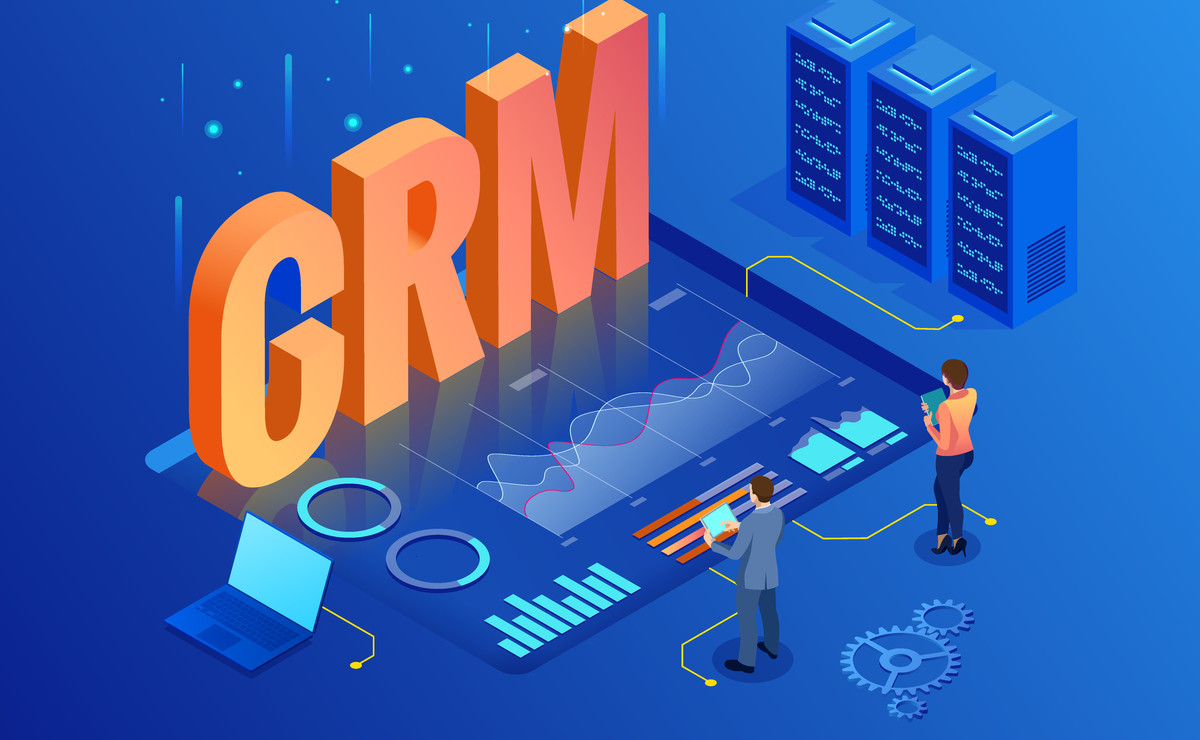Why growing businesses need to use a CRM?
In the early days of a business, managing information about your contacts and customers isn’t difficult because of CRM Software’s. However, as your business grows, you get more customers and hire more employees, information about contacts gets dispersed across spreadsheets, notepads, sticky notes, and memories.
Business growth is a great thing and with it comes the need to organize your information. That’s where a CRM — a Customer Relationship Management solution — helps you store information on client and prospect interactions with employees. Marketing and sales touch points like email, phone, website, live chat, and social media are tracked to provide your business with detailed context on a client’s activity and feedback. Overall, a CRM helps your team save precious time.
However, there are hundreds of different CRM solutions out there and they range from free to thousands of dollars per month.
What is CRM Software?
Customer relationship management (CRM) is a business strategy that stresses good ongoing relationships with customers. It holds that maintaining these relationships drives growth and profitability. There are two core elements of this customer-centric strategy:
- Presenting a unified face to the customer
- Providing a seamless customer experience
CRM software can help by synchronizing customer communications among business units. Sales, marketing and customer service can all get on the same page. It acts as a system of record for contacts and accounts throughout the customer lifecycle. With CRM tools companies can track, automate, analyze, and optimize customer interactions. At its core, a CRM is a database of contact information and interaction history for each individual contact.
To help you choose the best CRM, we’ve compiled the most recommended CRMs for SMBs and startups. We’ve collected reviews, highlights, and comparative features of each to help you evaluate the best CRM that suits your business’s needs.
Customer Relationship Management Software Features
In general, customer relationship management technology provides the following sets of capabilities:
Customer Data Management
CRM software collects and organizes customer data. This includes contact information and interactions via email, phone, web chat and social media.
Sales Acceleration and Enablement
CRM software helps streamline and automate certain sales-related duties. This helps enable sales reps to do their job better and also accelerates sales cycles through automation of repetitive tasks. These tasks may include:
- Creation of quotes
- Order processing
- Updating contact information
- Sending emails
- Sales forecasting
- Evaluating employee performance
Marketing CRM Software
CRMs are usually sales-focused. But there are benefits for marketing as well. Marketers usually store their leads in a this system, and often help with database management.
Integrating your CRM system with marketing automation, CMS, and eCommerce platforms can help improve marketing campaigns performance. Information in the CRM helps marketers target their messages sent through these systems to the right people. These communications can then be tracked within it.
Marketers can also use CRM software to report on marketing goals, like lead engagement and leads passed to sales. Having a shared database can help align sales and marketing efforts as well.
Some marketing automation tools include a built-in CRM system (e.g. HubSpot). Additionally, some vendors have developed marketing automation capabilities
All-in-one marketing tools typically include both CRM and marketing automation functionality. They often also have content management, SEO, social marketing and eCommerce capabilities. These tools are aimed at small businesses looking for basic features. Larger companies tend to favor a best-of-breed approach, integrating their CRM, marketing automation, and other systems.
List Of CRM Software’s
1. DigitalTreed
Digital Treed Provide an online CRM solution targeted at small and mid-sized businesses. It also provides project management, workflow automation, and reporting capabilities, along with 3rd-party integrations.
It is a single CMS that you can use to manage many leads. The product allows the standard tools . in this product have advanced features combine affiliate management, call recording, call routing and auto-dialers. The product not only takes leads but also supports you to verify and distribute them using various communication channels. Your sales representative can handle the email tracking to obtain whether their emails have been opened or not
2. ActiveCampaign
Active Campaign integrates email marketing, marketing automation, sales automation, and CRM software into one platform designed for small businesses.
3. HubSpot
HubSpot is a CRM software tool developed in USA which has functionalities includes company database, social media, drag-and-drop communicator, customized views & phone, website and email integration. You can get started with this software instantly and need not to modify your current workflow. This software gives the necessary basic features and does not disturb users with complicated links. For these reasons, it is proper for small and large size businesses in any industry.
With HubSpot , you can build a complete contact and company profiles as the program makes all data obtained from clients in touch with you. It gives a single dashboard that your group members can access to stay updated on business activities. One of the main benefits is you can connect this product to all the areas where you manage your sales process.
4. Microsoft Dynamics 365
Microsoft Dynamics 365 is a CRM providing sales, marketing, and service functionality. It is offered as SaaS and on-premise. Dynamics 365 is part of the larger Dynamics suite of business intelligence and ERP products.
5. Zoho CRM
Zoho is a simple, very low-cost option for the smaller end of the SMB segment. The product has several useful integrations with other products, including QuickBooks, and Google Apps and Google Docs. The product also has an integrated project management module.
6. Pipedrive
Pipedrive is another great CRM tool for sales and a strong software on our list of 10 best software tools. It makes your leads in a way that provides you a clear overview of your sales method and enables you to concentrate on important sales. You can use this software effectively to maintain your business sales. In fact, you can change modules on and off as per your wants without any effect on your quality of service. Key features add sales reporting, timeline view, export, contact history & email integration.




Leave a Review